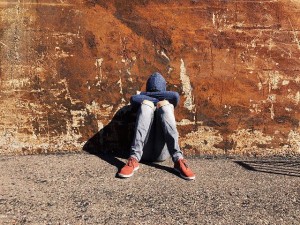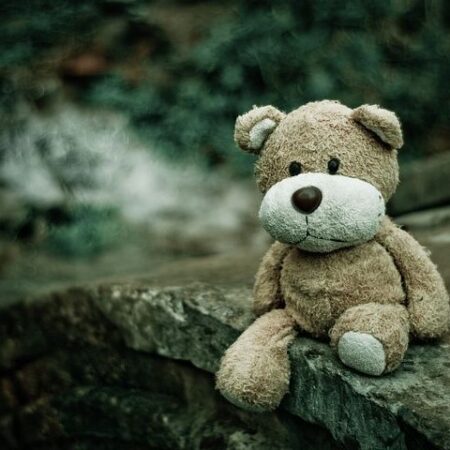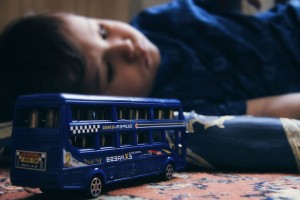The pandemic we’re living through has brought on a lot of dark days for many individuals, including kids. But think back a few weeks ago, just prior to this worldwide dilemma. How were your children feeling at that time? Did you notice any ongoing behavior or attitudes in them that just didn’t seem quite right?
Childhood is supposed to be a time of fun and games—filled with laughter, friendships, and endless energy. But for many children (and teens), their day-to-day involvement is just the opposite!
A dark cloak of hopelessness engulfs the thoughts of many kids day and night. These children are living with a major depressive disorder—more often known as depression.
You may think only adults experience this melancholy state of emotional imbalance. However, countless numbers of these kids go undiagnosed with this debilitating mental disorder every year because many grownups (including their parents) don’t believe children can “get depressed.”
However, according to WebMD: “Up to 3% of children and 8% of adolescents in the U.S. suffer from depression. Depression is significantly more common in boys under age 10. But by age 16, girls have a greater incidence of depression.”
A real case
Recently, I spoke with the mother of a preteen who has experienced the impact of depression in her own household. This woman’s family had made a significant move across the country while her child was in middle school.
 The preteen’s ability to “move forward” in the transition to their new city (and school) was greatly impacted by leaving behind an encouraging friend group during this pivotal time of social and physical development. Depression set in quickly and deeply for the teen, impacting daily structure and activities known in the prior location. Eventually, professional counseling became necessary and was found to be extremely effective in diagnosing and treating both anxiety and depression in the teen.
The preteen’s ability to “move forward” in the transition to their new city (and school) was greatly impacted by leaving behind an encouraging friend group during this pivotal time of social and physical development. Depression set in quickly and deeply for the teen, impacting daily structure and activities known in the prior location. Eventually, professional counseling became necessary and was found to be extremely effective in diagnosing and treating both anxiety and depression in the teen.
Understanding depression
Often people equate depression with being in an extremely sad mood. Although actual depressive disorders present many times through gloominess, depression is much more than sadness.
The National Institute of Mental Health (NIMH) explains that depression “causes severe symptoms that affect how you feel, think, and handle daily activities, such as sleeping, eating, or working.”
What does depression look like in children and teens?
Dr. Rhonda D’Imperio—Licensed Psychologist at The Babb Center for Counseling in Hendersonville, Tennessee—works with children and teens on a regular basis. She mentions several changes parents might notice in their child who is suffering from depression and/or anxiety.
Some of the changes in kids might include:
- Deviations in their sleep patterns and appetite
- Bed-wetting (even with older children and preteens)
- Irritability and negative thinking
- Extremes with eating much more or much less than their norm
If there is a loss or gain of weight by 10 percent in a short amount of time, parents should contact their child’s pediatrician.
Sometimes anxious or depressed kids start experimenting with substances like vaping, alcohol, or drug use—possibly using medications you wouldn’t have considered as harmful. For example, ADHD meds are stimulants and are sometimes taken by depressed children in a negative way, as an attempt to feel happier or to have more energy.
According to D’Imperio, self-harm behavior is also prevalent in childhood depression cases. Cutting, scratching, or causing additional skin abrasions are performed many times by these kids in an effort to “escape” their otherwise despairing thoughts and feelings.
Are there other symptoms to look for in kids?
Depression can appear differently in children than in adults since kids are not as adept at expressing their emotions. Kidcentraltn.com lists these symptoms in children that may indicate depression, particularly when they last for more than two consecutive weeks:
- Poor performance in school
- Withdrawal from friends and activities
- Sadness and hopelessness
- Lack of enthusiasm, energy or motivation
- Anger and rage
- Overreaction to criticism
- Feelings of being unable to satisfy ideals
- Poor self-esteem or guilt
- Indecision, lack of concentration or forgetfulness
- Restlessness and agitation
- Changes in eating or sleeping patterns
- Substance abuse
- Problems with authority
- Suicidal thoughts or actions
What causes depression in children?
Similar to adults, depression can be caused in kids by a number of life events or situations. Loss of relationships (or pets), physical/developmental delays or problems, environmental stress, problems relating to others of significance, and even a family history of depression can set children on a track of difficulty with their emotional state.
What should I do to help my child?
Dr. D’Imperio suggests parents gently ask their child questions if depression is suspected. Some examples are: “You seem very sad. Can I help you? I notice you’re wearing long sleeves a lot and you don’t want to wear your bathing suit even though it’s summertime. Can you tell me why? Do you want to talk to me about your sad feelings? Would you like to talk with a counselor about what is bothering you?” The good news is that many children and teens are open to counseling—more so than adults.
Other helpful possibilities might be for your child to talk with a trusted pastor, church leader, friend of the family, or a close relative—as long as they are someone you approve of and your child feels at ease.
Depression treatment for kids includes child-focused therapy and/or medication. A counselor cannot prescribe meds for your child, but they can diagnose depression. Once a diagnosis is made, you can go to a doctor or qualified nurse practitioner who can prescribe anti-anxiety/depression medication.
Your situation
If your child is having several of the symptoms listed above and is not functioning in his normal daily activities, don’t hesitate to seek assistance through a medical doctor or licensed professional counselor in your area. There is hope! Anxiety and depression are both treatable mental health conditions for children, teens, and adults.
If you live in the Hendersonville, Tennessee area and would like to schedule an appointment with
Rhonda D’Imperio, contact:
The Babb Center for Counseling
615-824-3772
105 Music Village Blvd.
Hendersonville, Tennessee 37075


